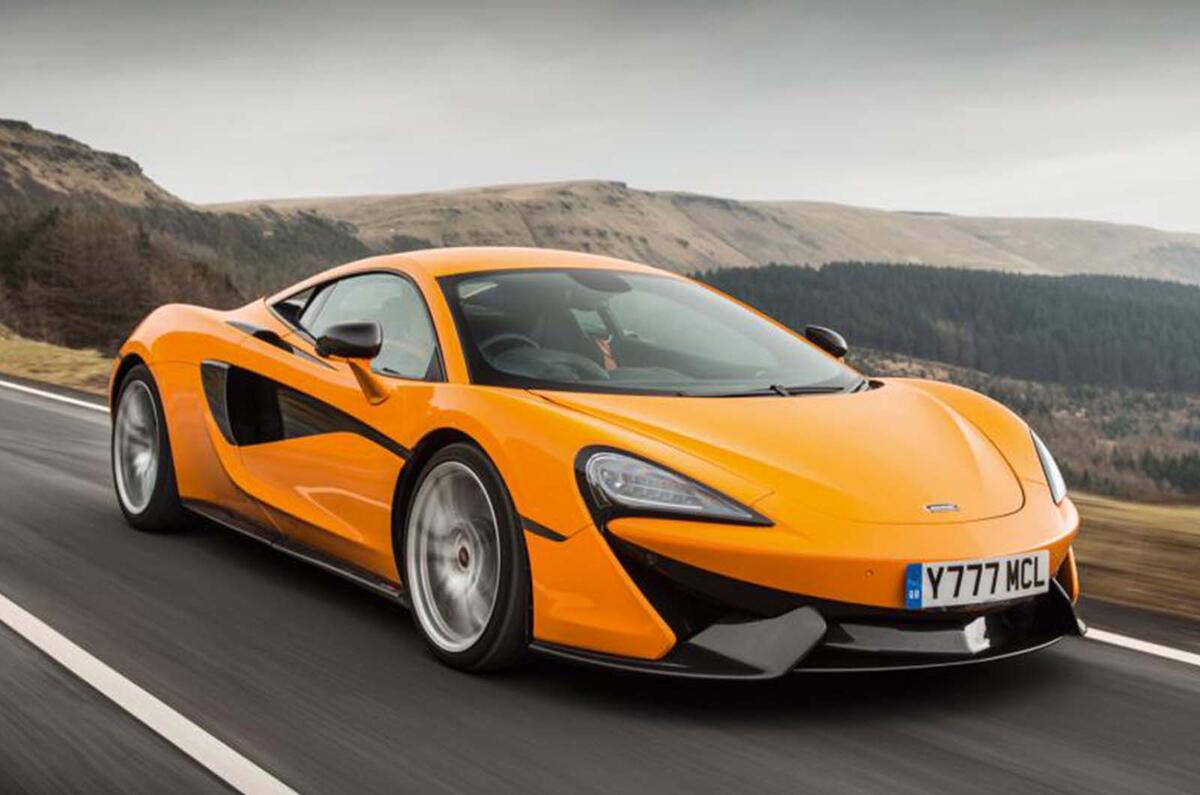The next generation of McLaren sportscars, which will arrive from 2019, will use hybrid powertrains and have autonomous driving capability.
The core models, the first of which will be a replacement for the 570S, will be based on a new structure that will be an evolution of the current Monocell II architecture.
Following the successor to the 570S – which sits upon the lowest ‘Sports Series’ tier on McLaren’s model ladder – each subsequent replacement will use a hybrid powertrain. Given the McLaren 720S was launched last year, that Super Series model won’t be hybridised until 2022.
“Hybrid design is part of the next platform – it is designed-in from day one rather than having to adapt an existing chassis,” said boss Mike Flewitt. He confirmed that a hybrid powertrain will be the only option within McLaren’s core model ranges and cars will not be offered only with internal combustion engines.
McLaren's carbonfibre manufacturing centre nears completion
However, Flewitt would not rule out non-hybrid powertrains in some limited-edition models in its Ultimate Series, which includes the forthcoming Senna track car and the BP23.
The latter will use a twin-turbo 4.0-litre V8 engine augmented by an electric motor and battery pack. However, the hybrid powertrains due to be used in the Sports Series and Super Series models are likely to have a different set-up that will include a downsized turbocharged V6.
The new generation of cars will also mark the introduction of autonomous driving features to McLaren models. However, Flewitt said the firm will not adopt every possible aspect of self-driving technology currently on the market.
“We will be selective. Autonomy in its own right isn’t that appealing to our customers, but we need to have capabilities designed in for safety, legislation and emissions,” he said.
Read more:
McLaren 720S review




Join the debate
Add your comment
What next?
Caterhams with parking
No good reading in this
Imagine an F1, modified to be a small turbo hybrid, and then laced with autonomy and a dual clutch box.
And then try not to cry.
eseaton wrote:
Atleast they are not going full electric for some time. There were talks about a full electic sportscar but I think they have dropped it for now! They know what their costumers want.
@eseaton
It's pretty easy to imagine, it was a P1 which most people loved rather than cried over. Admittedly it's no F1, but can any car rival that?
No F1, as you say.
Really not sure 'loved' is the word for the P1. Admired, and then quickly forgotten I would say.
And no matter what management
manicm wrote:
I wouldn't be too sure. McLarens on sale today all use a derivation of the same carbon fibre monocoque and mid mounted V8. Adapting that for a front engined, 5 door, 4 seater wouldn't be easy. McLaren don't have access to a large parent company for a bit of badge engineering like Maserati, Porsche, etc
Leslie Brook wrote:
Then they've dug a grave for themselves. You cannot continue being a one-trick pony and expect to survive. Also note, they're beholden to global shareholders.
Why do people insist on this
Why do people insist on this notion? An SUV is not necessary for survival if you do something else very well and you plan and size your business for that market. An SUV can make more money for a company, but there's a critical difference between more and survival. Porsche didn't need the Cayenne, but they said they did so people would excuse it. Porsche's sports cars from the 993 through the current cars have all been profitable on their own. The SUVs and sedans make them more money, but they'd be alive and well if they still just made sports cars. Do you really think Ferrari needs an SUV to survive? They clearly don't -- Marchionne may do it anyway, because he may make even more money. And ruin Ferrari.
Speedraser wrote:
Porsche didn't need the Cayenne? Under which rock have you been living all these decades?
Quote:
'In 2002/2003 the company’s total sales were 66 803 cars almost half of which were 911s. Compare that with 2016. The total is now a staggering 237 778 cars, and just 32 409 of them were 911s while 70 000 were Cayennes.'
So in 2016 Porsche sold no more 911s really than in 2002!
Go back under your rock.